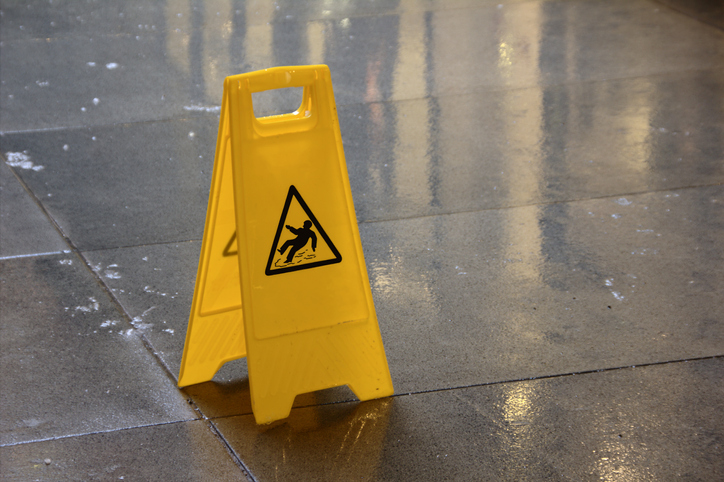
Which Types of Car Accidents Are Most Dangerous?
July 8, 2021
Verdicts & Settlements: $972K Jury Award, Upheld by Fla. 4th DCA, Finally Resolved
July 15, 2021Can I File a Workers’ Comp Claim if I’m Injured at Home?

Yes – people who are injured while on the clock are entitled to file a workers’ comp claim, regardless of where they are when the injury happened. However, there can be complications for workers who are injured while working remotely.
The main hurdles are evidentiary in nature. You need to be able to prove your injury happened because of your job duties.
The Dangers of Working From Home
in a 2006 workers’ comp case – Verizon Pennsylvania Inc v. Workers Compensation Appeal Board Alston – a remote customer service worker fell down the stairs in her home while performing her job duties.
How does a customer support worker who is on the phone all day get injured on the job? Brenda Alston’s office was in her basement. She went upstairs to drink a glass of juice. While upstairs Brenda heard her work phone ringing, so she headed back downstairs, at which point she fell. Brenda suffered head and neck injuries while attempting to take a work call.
Was the Injury Sustained While Furthering the Employer’s Business?
What’s often key in remote workplace injuries is whether the injury occurred while the worker was doing their job duties, frequently referred to in legal parlance as, “Furthering the employer’s business or affairs.”
Verizon initially argued that Brenda getting a glass of juice wasn’t in the scope of her employment and wasn’t furthering their business. In their interpretation of the law, the injury would have needed to occur while she was sitting at her desk doing work for Verizon.
In past cases courts have decided that temporary departures from work for the purposes of reasonable comfort – like taking an authorized lunch break – doesn’t constitute an interruption to the furtherance of the employer’s business. However, other precedent establishes that a stationary employee – one in an office – isn’t furthering their employer’s business if they go offsite to deal with a personal matter – even if they’re authorized to do so by their employer.
That essentially means if you need to leave your office for a doctor’s appointment during the workday and you get in a car accident on your way to the doctor, your injuries wouldn’t be covered by workers’ comp. Although you were given permission to leave – even if you’re using personal hours to do so – those actions aren’t in the furtherance of your employer’s business.
The key here is Brenda was on the clock and attempting to perform her job duties when the injury occurred. Other scenarios where Brenda would still be covered include things like going to the bathroom. Doing things any person would need to do to keep working and being productive are considered by law in most cases to be part of that overarching furtherance of your employer’s business.
The Detective Who Shot Himself
Another interesting off-site injury case was City of Harrisburg v. Workmen’s Comp. Appeal Bd. (Gebhart). In that case a detective accidently shot himself while unholstering his service revolver after he got home from a shift at work. Technically he was off the clock when the injury occurred, but the court argued that he was engaged in the furtherance of his employer’s business affairs because securing and storing his firearm at the end of his shift is a part of his job. They found the employer failed to provide somewhere on the police office’s premises where off-duty personnel could store their firearms before going home. Had that detective stored his service firearm at the police headquarters, went home and then shot himself while cleaning one of his own, non-service firearms, he wouldn’t have had a case.
Should Your Off-Site Injury Be Covered by Workers’ Comp?
There are several important factors that can affect the outcome of a workers’ comp case. Workers most importantly must prove what they were doing when the injury occurred was a necessary part of their employment.
However, what is and isn’t considered part of your job is sometimes in the eye of the beholder. Different workers’ comp courts and appeal boards might have different interpretations of specific scenarios. In general, if you were doing everything right or the thing you were doing at the time of your injury was in furtherance of your job – even if that thing was stopping for lunch – chances are you might have a workers’ comp case.
If you’ve been injured at work, even if you were working from home at the time, you should file a workers’ comp claim. If your claim is then denied, you may want to consider speaking with a workers’ comp attorney. Workers’ comp attorneys help injured workers through the often-complicated appeals process. They can help you understand whether or not you have a legitimate workplace injury case.

